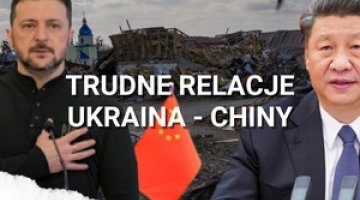Poroshenko authorises a blockade of the Donbas
On 15 March, the National Security and Defence Council of Ukraine (NSDC) decided to immediately suspend freight traffic on the demarcation line between the areas controlled by the Ukrainian government and the self-proclaimed ‘republics’ in the Donbas. The prohibition does not include the transport of small quantities of food etc. by pedestrians and cars. For more than a month now, an unsanctioned ‘social’ blockade of shipments of coal, coke and iron ore, carried out by armed veterans of the ATO (anti-terrorist operation, as the ongoing war is officially called in Kyiv), has been going on in the area. The decision by the Ukrainian government has been denounced not only by Russia, but also Germany and France; in the latter countries’ view, this is another step delaying the implementation of the Minsk agreement.
Commentary
- The decision by President Poroshenko (who chairs the NSDC) came as a total surprise, because until now he had been firmly opposed to the trade blockade with the Donbas. This step was a response to growing public support for the blockade organised by the ATO veterans, and to the inability, if not aversion, of the services of law and order to eliminating it, as well as the growing number of incidents related to the illegal blockades. In this situation, although the consequences of this decision will be negative in both political and economic terms (especially with regard to energy and metallurgy, and therefore exports), the Ukrainian government had no other options than to authorise the current activity.
- The introduction of the state’s blockade has been accompanied by the overwhelming criticism of the ‘social’ blockade as a step towards anarchy in the country, acting to the detriment of the economy, and even to Russia’s benefit. To a great extent, this is connected to the fact that the organisers of the blockades include opposition parties (especially Self-Reliance [Самопоміч]), which had even deemed the authorities’ condoning of trade with the Donbas as a pure act of betrayal. Another theme of this criticism is the growing awareness that the domestic situation risks degenerating into anarchy.
- In the last few weeks in Ukraine, an increase in social tension has been observed, one expression of which was the anti-government demonstrations in Kyiv. The fact that the participants in not only the Donbas blockades, but also in the short-term blockade of the Warsaw-Kyiv highway on 18 March, were armed should serve as a warning sign (the latter blockade was organised by illegal amber miners from Volhynia). Confronted with the threat of public life descending into anarchy, and an inability to halt this process by the use of standard instruments of state power, the president of Ukraine decided to concede to a demand by one of his major opponents. This will probably precede further concessions, to ease the mood of protest, and allow the reconstruction of the currently violated monopoly on the use of force by the competent authorities of the state.





